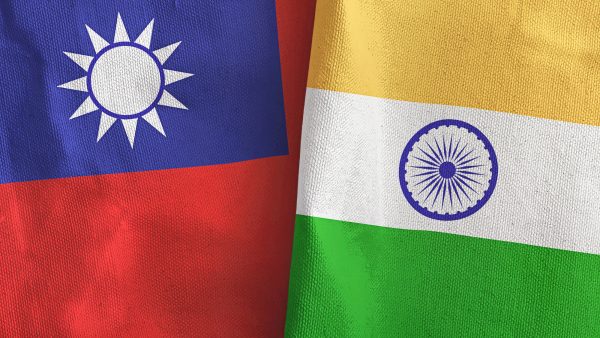The war in Ukraine and China’s support for Russia throughout the conflict have sharpened Western policymakers’ focus on Taiwan, with many observers quick to identify parallels. Some in the US intelligence community believe China may act against Taiwan as early as 2024. The debate is now less about whether China will make a move, and more about when and how.
Russia’s attacks on Ukraine laid bare the fragility of globalised supply chains and the risk of dependencies. Meanwhile, military pressure by China against Taiwan has risen markedly: in 2022, Chinese incursions into Taiwan’s air defence identification zone jumped from 960 to 1,727 planes. But European governments have not yet done enough to explore – in public – what a conflict over Taiwan would mean in economic and security terms for their voters. They should start to do this.
There is a lot to say. Taiwan produces over 60 per cent of the world’s semiconductors and, crucially, over 90 per cent of the most advanced chips. Any disruption of imports from Taiwan would create immediate ripple effects on critical semiconductor supply chains. This would have devastating consequences for many European industries, including the automobile sector. As one of the most important shipping routes in the world and a crucial connection between factories in east Asia and European consumers, any blockade of the Taiwan Strait would also put trade with countries beyond Taiwan at serious risk. A sea blockade would threaten at least$2 trillion of economic activity, not even taking into account the costs of supply chain disruptions and potential Western sanctions, which could pile on a further $3 trillion.
The future of Taiwan is not just a matter for the United States to deal
A military escalation in the Taiwan Strait is, therefore, a real security risk for Europe; the future of Taiwan is not just a matter for the United States to deal with. So, if European policymakers are to prepare well for such developments, they will need to ensure they take their publics with them through what could be difficult decisions. Yet publics in Europe and G7 states appear unaware of the potential seriousness for their own lives of any contingency over Taiwan. Recent polling conducted for ECFR found that only 23 per cent of people across a selected sample of European countries would want their country to support the US in a conflict over Taiwan; fully 62 per cent would want to remain neutral. Other polling revealed that 37 per cent of respondents do not know what they think about the situation, or that they know nothing at all. In Japan, rhetoric by political leaders is evolving in favour of Taiwan, but over half of the population opposes direct involvement by the Japanese Self-Defense Forces in a military conflict with China. In contrast, in the US, politicians have led on the discussion of Taiwan and China in recent years; here, the public has a clear opinion on Taiwan, with 76 per cent favouring diplomatic and economic sanctions against China and 62 per cent supporting the idea of the US navy acting to prevent a sea blockade.
With the stakes so high for European security and the economy, political neutrality will be hard to maintain in any crisis scenario. And the war in Ukraine shows that in democratic societies public buy-in for costly foreign policies, such as sanctioning China or supporting Taiwan financially, is crucial to ensure their long-term sustainability. Implementing such policies without popular support could lead to the further polarisation of already fragmented domestic political landscapes. In the event of Chinese attacks on Taiwan, business elites could use the public’s uncertainty and lack of knowledge to lobby against a strong sanctions response by the European Union and the G7.
Policymakers in European and G7 countries must, therefore, start communicating the crucial importance of Taiwan to their voters more effectively and place the issue more prominently in their public discourse. They should begin by clearly laying out the significance of Taiwan in key government documents, as Germany has done in its freshly published China strategy. The paper goes beyond pronouncements about the need to “preserve peace and stability in the Taiwan Strait” and draws clear links between a military escalation around Taiwan and direct effects on German and European interests. Since such publications often frame public discussions and media reports, this is a good way to shape the wider discourse. The EU missed just such an opportunity with its recently released economic security strategy – which makes no mention of Taiwan at all.
Next: in order to take the debate from the expert level to a more general audience, it is of crucial importance to enhance the visibility of Taiwan-related questions in European media. Political leaders can do this by posing these questions more frequently in television and radio talk shows or newspaper interviews on China; they can also make explicit links between the fate of Taiwan and economic security and semiconductor supply chains.
And finally, to land their argument, leaders in different countries should prioritise different narratives, attuned to the priorities of their populations. For example, German policymakers might wish to emphasise the huge economic costs for their country associated with disruption in the Taiwan Strait. In eastern European states, leaders may meet with more success by focusing on Taiwan’s importance as a democracy threatened by an overpowering authoritarian neighbour.
If publics in Europe and the G7 possess a fuller understanding of the costs of escalation by China, popular support for Taiwan is likely to rise. This would help governments make difficult choices during a crisis and thereby mitigate domestic political backlash. As the likelihood of conflict in the Taiwan Strait grows, it is time for the extent and quality of public discourse to measure up to the huge potential global costs.
The European Council on Foreign Relations does not take collective positions. ECFR publications only represent the views of their individual authors.



